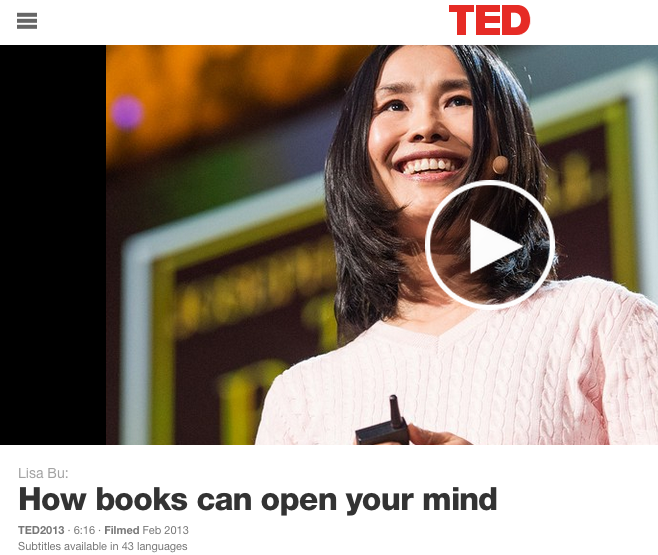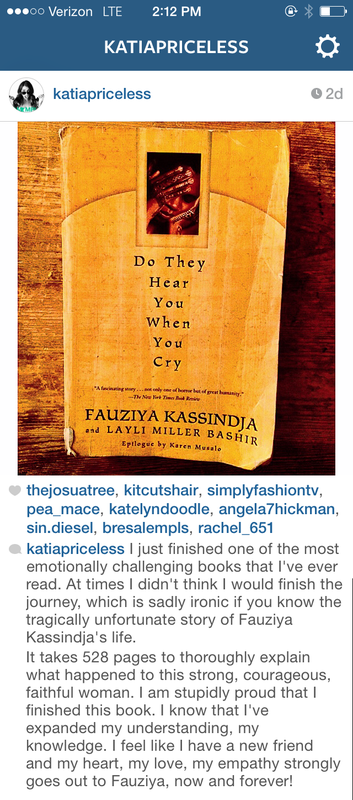Some of you may remember my post about how much I love Ted Talks, they are excellent snip-its that inspire and teach.
Do They Hear You When You Cry
I found this book at Hidden Treasures Thrift Store in St. Anthony one evening while I was trying to waste time before a documentary screening. The book challenged me on lots of different levels. I cried numerous times and it took me over a month to complete. I am so inspired that Fauziya Kassindja was strong enough to endure this tragedy and then to provide the world with the this detailed account. After what Kassindja went through I don't know if I'd have had the stamina to tell the story, reliving it over and over, draft after draft.
The facts are startling, Kassindja was thought of as property in her culture, property to be mutilated to her owner's dismay. She escaped the terrors of her home life only to be imprisoned by an evidentially dysfunctional asylum system. This book is long and at times it was extremely difficult for me to follow all of the legal jargon but I upon finishing I appreciated all of the lengthy explanation. The hard work, the long hours, dedication and persistence of everyone involved in fighting for the justice of Kassindja's claim deserves to be accounted for. It was long, at times torturous but if that young woman could survive what life put her through then the least I could do was read every word and encourage you to do the same.
read it for yourself :)
Hidden Girl: The True Story of a Modern-Day Child Slave
Ok, this is reidiculous but I need to get this petty detail out of the way, I listened to this book on Audible (an app for audio books). And I found the voice reading the story to be incredibly annoying. Something about the inflection the woman uses, but somehow I suffered through it and learned the story of Shyima's life. I am so glad that I didn't let the voice deter me because Shyima is an incredible survivor who is turning her struggles into her life's work. This beautiful Egyptian girl was sold into slavery by her mother, trafficked into the United States by the family who 'owned' her, she was recovered by agents of the US government and eventually built herself into a driven, strong, intelligent, self sufficient, highly evolved woman. I absolutely love that Shyima is using this experience to drive her career ambitions.
There are a lot of similarities between the situations that Shyima and Fauziya endured, the most brazen is that both cultures are patriarchal and both girls were thought of as property in the events that lead to their leaving their homes. Fauziya was blessed by her father's progressive attitude towards their tribal traditions but with his death by tribal law she became the property of her father's family. Shyima's family was incredibly impoverished and her father was absent a lot during the time she remembers in Egypt. Both girls are brought up in Muslim homes, Fauziya's faith stays strong through out her hardships while Shyima struggles with her's. At one point Shyima expresses that she didn't realize that people other than Muslim's could be bad people. The similarities, the differences, the vulnerability and the strength shown make both of these women my heroins.




 RSS Feed
RSS Feed
